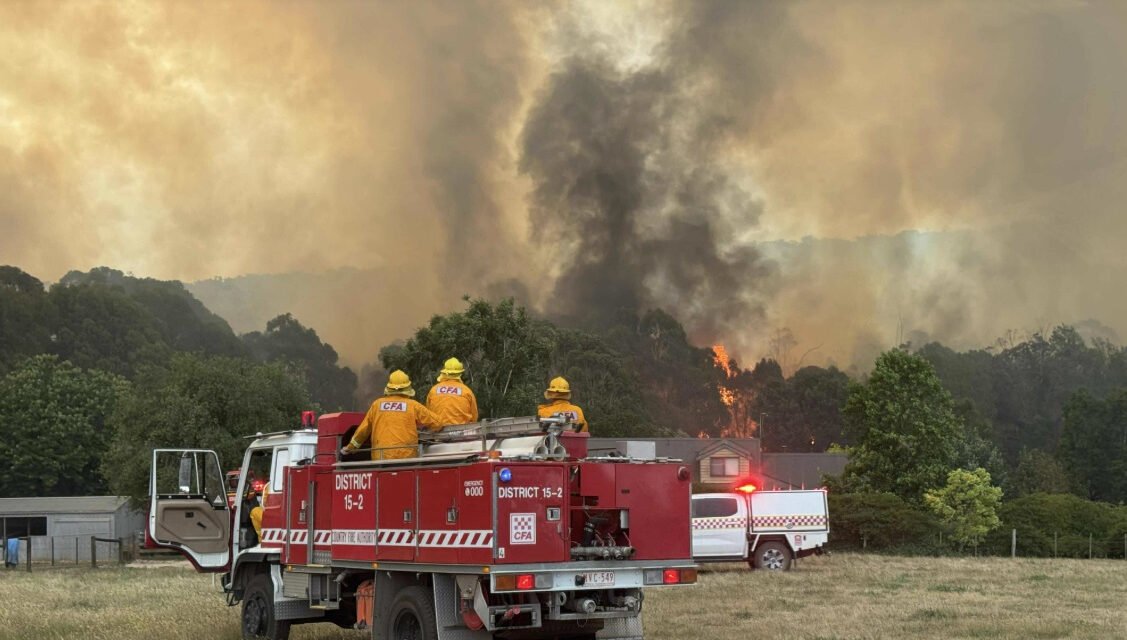The Victorian Government has announced the introduction of the Emergency Services and Volunteers Fund (ESVF), set to replace the Fire Services Property Levy (FSPL) from 1 July 2025. The ESVF is designed to provide additional funding to emergency services, including Victoria State Emergency Service (VICSES), Triple Zero Victoria, the State Control Centre, Forest Fire Management Victoria, and Emergency Recovery Victoria.
Under the FSPL, the levy primarily funded Fire Rescue Victoria (FRV) and the Country Fire Authority (CFA). The new ESVF aims to broaden financial support for a wider range of emergency response services, bringing Victoria in line with other Australian states.
The ESVF will be structured similarly to the FSPL, with a fixed charge varying by property type and a variable charge based on property value. Pensioners, veterans, and single farm enterprises will continue to receive concessions, and emergency service volunteers will be exempt from paying the levy on their primary residence. Revenue collected through the ESVF will be used for life-saving equipment, vehicles, volunteer training, community education, and disaster recovery efforts.
However, the introduction of the ESVF has drawn criticism, particularly from rural councils and agricultural groups. An analysis by Rural Councils Victoria (RCV) suggests that overall, the levy will increase by 90% on rural properties with residential rural properties facing 31% increases and primary producers paying 154% more than at present. According to RCV’s analysis, the total financial burden on rural communities is projected to rise by $140 million annually.
Another key point of contention is the requirement for local councils to collect the levy through rates notices. The increased levy is effectively shifting costs of emergency services from the state government to rate payers. The increases will likely add further to rental costs already impacted by the Vacant Residential Land Tax and the Short Term Stays Levy.
Hepburn Shire Council has echoed RCV’s concerns. “Council has written to the Victorian Treasurer expressing concerns about the new tax, its potential impact on rural communities, and the unfair expectation that councils should act as debt collectors for the State Government,” said Shire CEO Bradley Thomas.
RCV has also highlighted the risk of unchecked levy increases, noting that while local councils operate under a rate cap system, there is no such limitation on the ESVF. The organization has called for a cap or scheduled increases to prevent excessive future taxation.
RCV Chair Cr Rob Amos has warned that the new levy will have significant economic consequences. “This new levy is dreadfully unfair. It’s going to smash farm budgets, hurt local businesses, and cause job losses in our towns and communities,” he said. “Every extra dollar we send to Spring Street is a dollar that can’t be spent in a local business or used to pay an employee.”
Financial stress is already a leading cause of mental health concerns among farmers, and RCV has emphasized that additional taxation pressures will exacerbate these challenges.
RCV is urging the government to reconsider the structure of the levy, calling for an equitable distribution of costs among all Victorian landholders. “This new levy will hit Victorian farmers the hardest. How does that make any sense after years of drought and amid a cost-of-living crisis?” Cr Amos questioned.
Additionally, concerns have been raised about the transparency of ESVF revenue allocation. RCV has expressed frustration over the lack of guarantees ensuring that the funds will be reinvested into local CFA and SES services, infrastructure, and equipment.
While the government has announced exemptions for emergency service volunteers, RCV has pointed out that these exemptions will apply only to a single rateable property. Many farmers own multiple properties, meaning they will still face substantial levy payments despite their service contributions.
With the ESVF set to take effect in July 2025, RCV and other stakeholders are pressing the government to address the concerns raised by rural communities. “There’s still time for the Victorian Government to acknowledge the inequities and unforeseen consequences of this new levy and make changes,” Cr Amos said.
Rural Councils Victoria has formally written to the Victorian Treasurer, Jaclyn Symes, requesting a review of the levy’s structure and its impact on rural Victorians. As discussions continue, affected communities are watching closely to see whether their concerns will be addressed before the levy comes into force.





